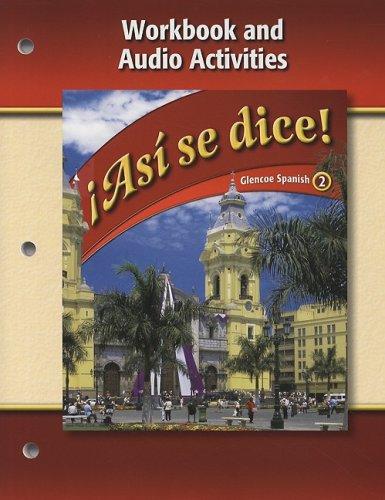
All Solutions
Page 5: Gramática (Imperfecto de los verbos irregulares)
The right verb form is **iba** (went), because the subject of the sentence is *I*.
Yo **iba** a la misma escuela que José.
*(I went to the same school as José)*
The right verb form is **éramos** (were), because the subject of the sentence is *We*.
Nosotros **éramos** buenos alumnos.
*(We were good students)*
The right verb form is **iba** (went) for both cases because the subject of the sentence is *he* and *I*.
José **iba** a la escuela en el bus escolar y yo iba a pie.
*(José went to school on the school bus and I went on foot)*
The right verb form is **ibas** (go) because the subject is *You*. And for the other verb the right form is **eras** (were) because the subject is *You*.
¿Cómo ibas tú a la escuela y qué tipo de alumno eras?
*(How did you go to school and what kind of student were you?)*
According to the context of the sentence and because the subject is *I*, we will complete with ***iba***.
Yo **iba** y él venía.
*(I was going and he was coming.)*
According to the context of the sentence and because the subject is *We*, we will complete with ***ibamos***.
Nosotros **ibamos** y ellos iban.
*(We were going and they were coming).*
According to the context of the sentence and because the subject is *They*, we will complete with ***iban***.
Ellos **iban** y tú venías.
*(They were going and you were coming)*.
According to the context of the sentence and because the subject is *You*, we will complete with **ibas**.
Tú **ibas** y yo venía.
*(You were going and I was coming)*
According to the context of the sentence and because the subject is *You* second-person plural, we will complete with **iban**.
Ustedes **iban** y nosotros veníamos.
*(You were and we were coming)*
We need to change the verb *tengo* to its imperfect form ***tenía***, since the subject of the sentence is *I*. And the verb *son* to its imperfect form **eran** since the subject of the subordinate clause is *They*.
**Yo tenía padres que eran muy generosos.**
*(I had parents who were very generous).*
We need to change the verb *van* to its imperfect form ***iban*** since the subject of the sentence is *They*. And the verb *hay* to its imperfect form ***había*** since the subject of the subordinate clause is *It*.
**Ellos siempre iban al parque cuando había un juego de fútbol.**
*(They always went to the park when there was a soccer game.)*
We need to change the verb *vamos* to its imperfect form ***íbamos*** since the subject of the sentence is *We*.
**En el verano siempre íbamos a la playa.**
*(In the summer we always went to the beach)*
We need to change the verb *es* to its imperfect form ***era*** since the subject of the sentence is *It*. And the verb *gusta* to its imperfect form **gustaba** of the first-person singular.
**La playa era muy bonita y me gustaba mucho.**
*(The beach was very beautiful and I really liked it).*
We need to change the verb *soy* to its imperfect form **era** since the subject of the sentence is *I*. And the verb *corro* to its imperfect form **corría** of the first-person singular.
**Cuando era muy joven, corría las olas.**
*(When I was very young I used to ride the waves).*
We need to change the verb *son* to its imperfect form **eran** since the subject of the sentence is third-person plural.
**Las olas eran muy altas.**
*(The waves were very high)*
We need to change the verb *ves* to its imperfect form **veías** since the subject of the sentence is You.
**¿Veías mucho a tus parientes en el pariente?**
*(Did you see your relatives a lot in the relative?)*

